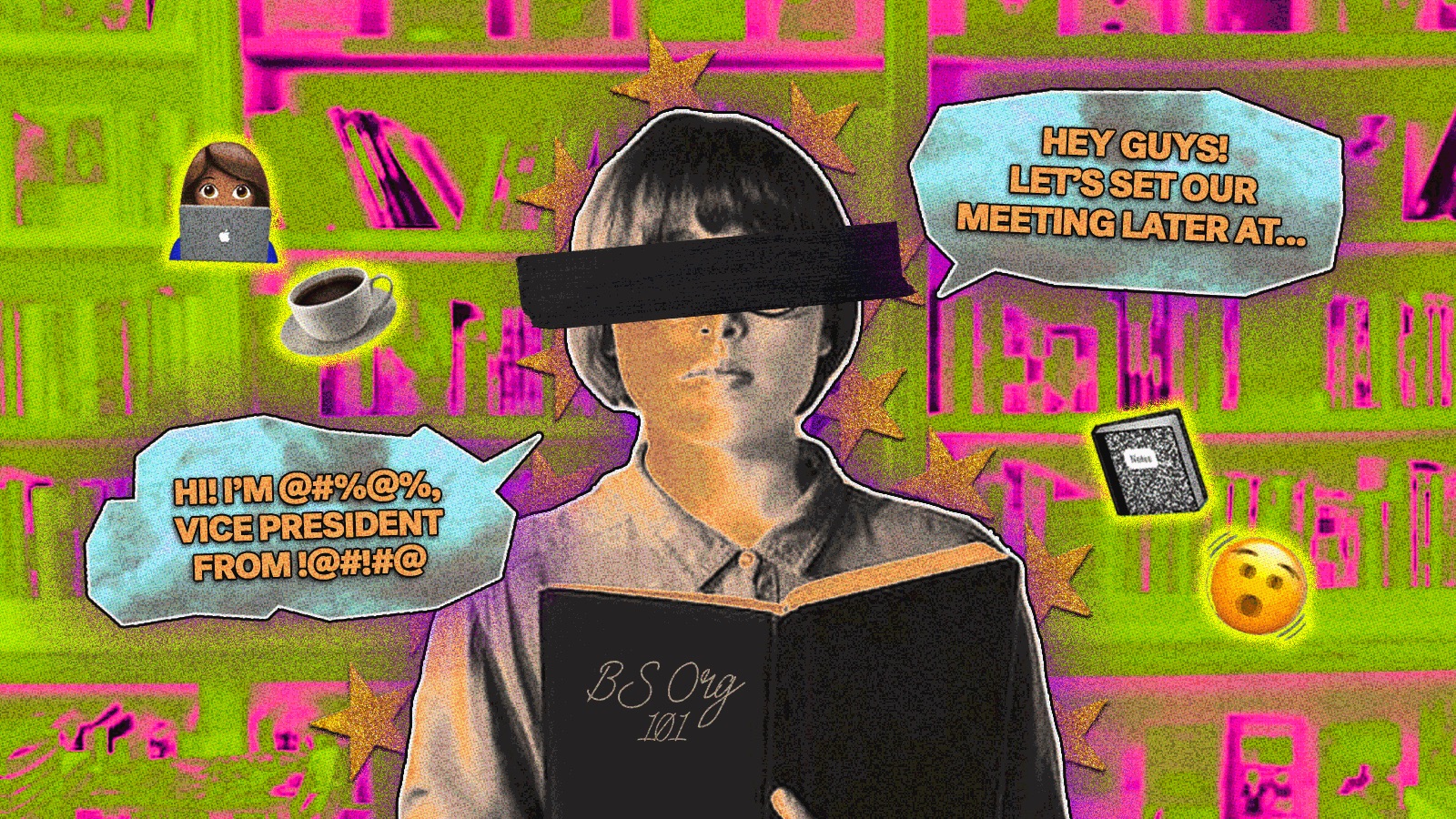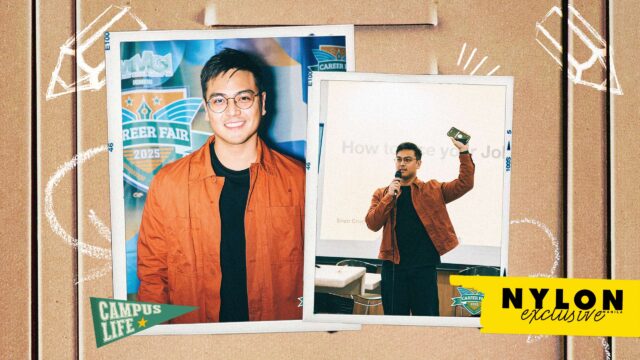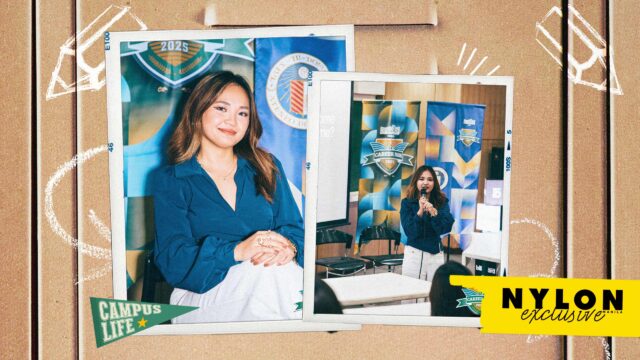For these former org-active student leaders, there was much to learn, much to overcome, and much to accomplish.
Related: These Filipino College Students’ Final Project is Bringing Accessibility to the PWD Community
One of the most exciting things about college is that you get to join all kinds of organizations and projects and pursue that BS org life. You could start your career in student government, develop a new skill, advocate for social justice in advocacy-oriented organizations, and so much more. Some of them may be right up your alley, but some of them may be totally out of your comfort zone—and that’s okay! Whether or not you loved the org or the leadership experience, hopefully you, like these former student leaders, will have learned something valuable.
MEET THE STUDENT LEADERS
When we talk about student leadership, often the first the first thing that comes to mind is being active in student government. This is, of course, an important aspect of the term, but according to Claflin University, student leadership is also simply about being in the position to influence, motivate, and guide others. It’s about developing a sense of community and working with others to create something meaningful.
These five Gen Z former student leaders have experienced the highs and lows of student leadership in different fields and organizations:
Stanley Guevarra
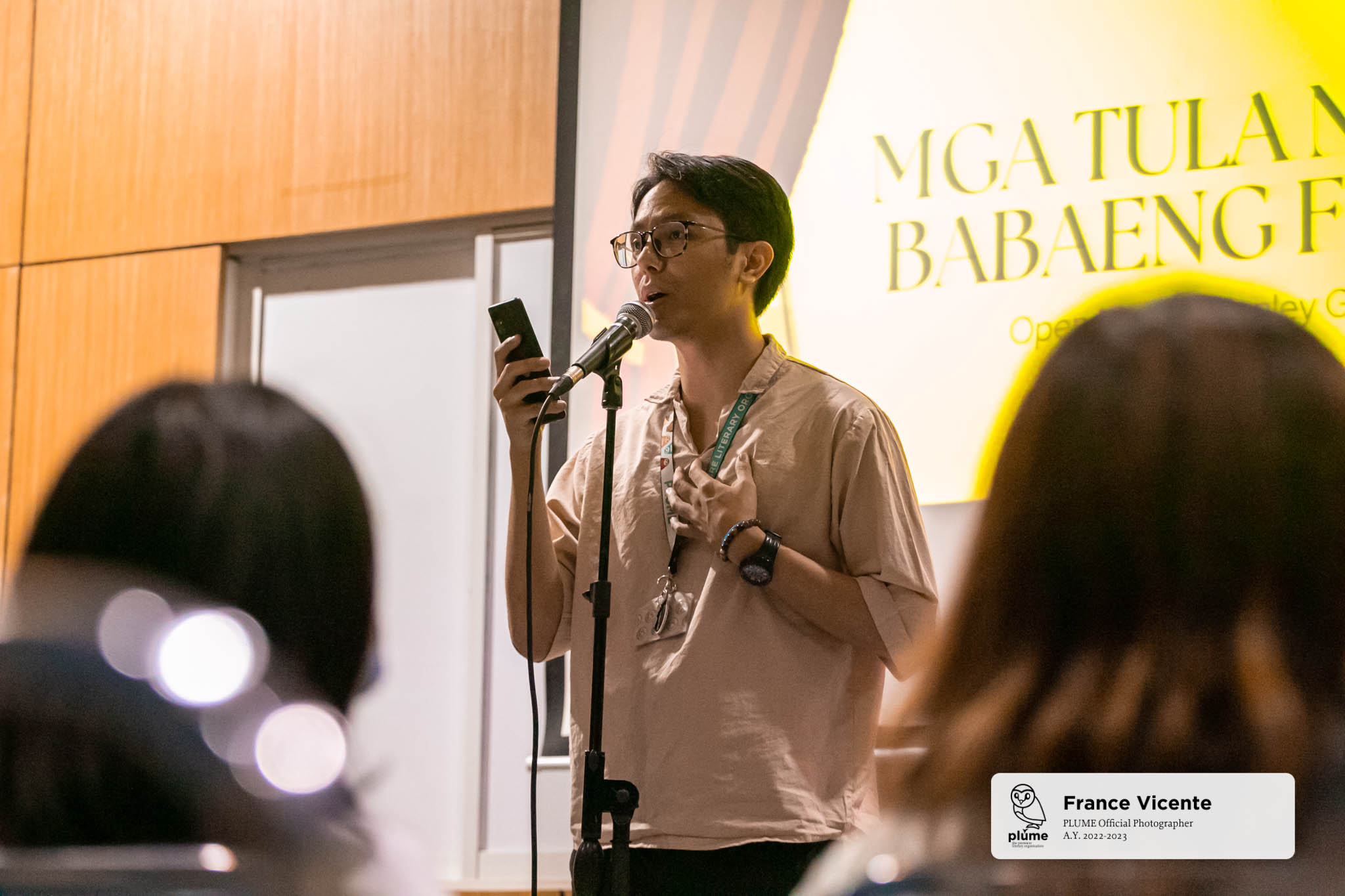
Stanley Guevarra was formerly the editor-in-chief of HEIGHTS Ateneo. HEIGHTS is the literary and artistic publication of the Ateneo de Manila University. Primarily, it celebrates literary and artistic excellence by publishing creative work done by the Ateneo community. He also founded and presided over PLUME, a literary organization and book club all about appreciating and promoting literature and the arts.
During his time in HEIGHTS, Stanley struggled with addressing the tension between wanting to make art and literature accessible to all while also still being a publication that can choose not to publish certain pieces for varying reasons. His efforts involved trying to expand the reach of HEIGHTS through political publication themes and establish it as a publication grounded in society and its current issues.
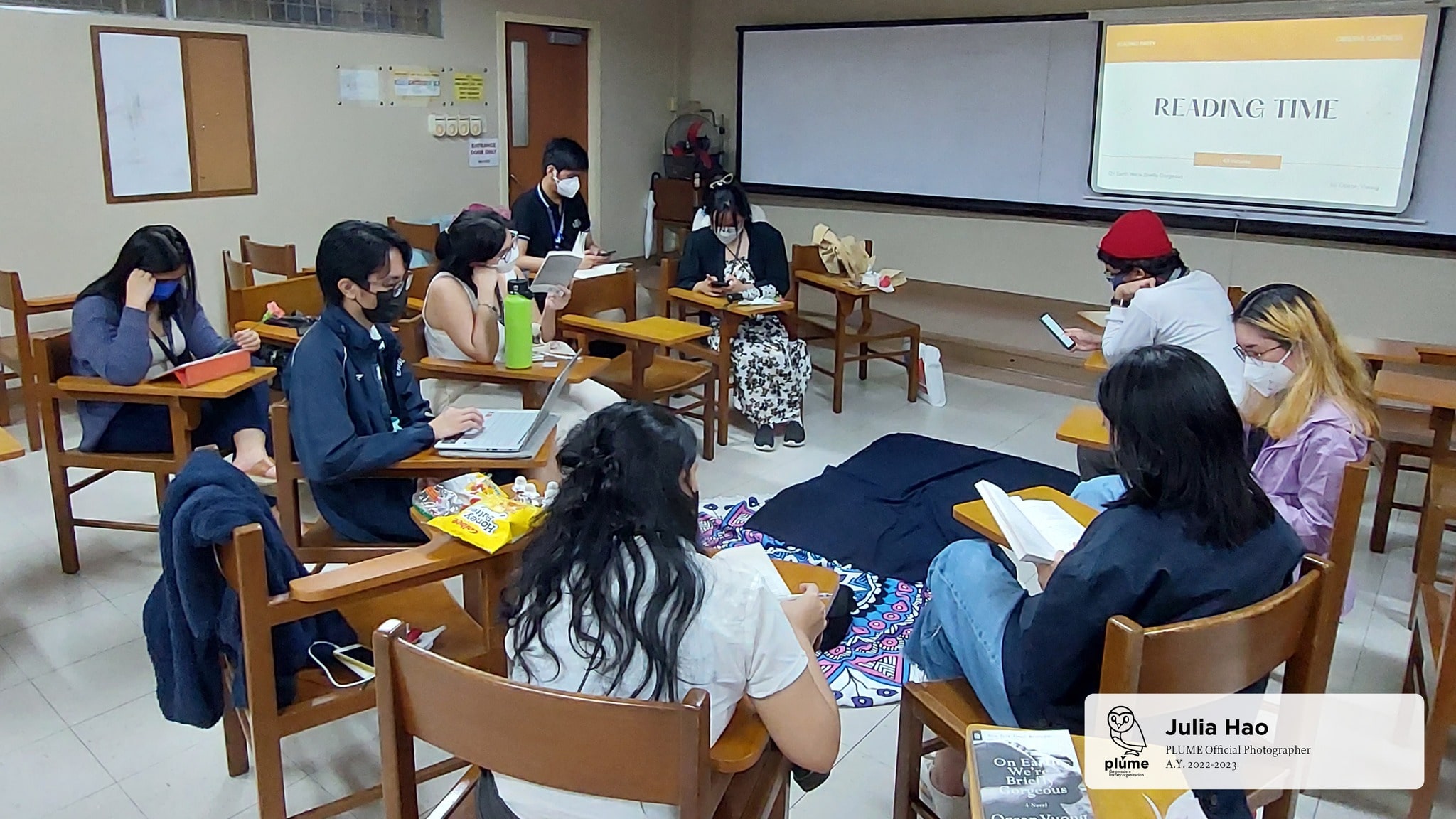
Stanley then founded PLUME as a response to the issue of making literature accessible, as well as students’ clamor for a book club and a community of book-lovers brought together by a love of literature. But problems of differing literary interests and levels of commitment also made building a literary community “from the ground up” challenging.
“It was difficult to accommodate everyone’s interests and needs,” he reflects. Members had different genre preferences, different ideas about what to do in the club, and more. Regardless, PLUME was able to bring fresh ideas to life through reading sessions, presentations, open mics, and events that really channeled the community’s love for art and literature.
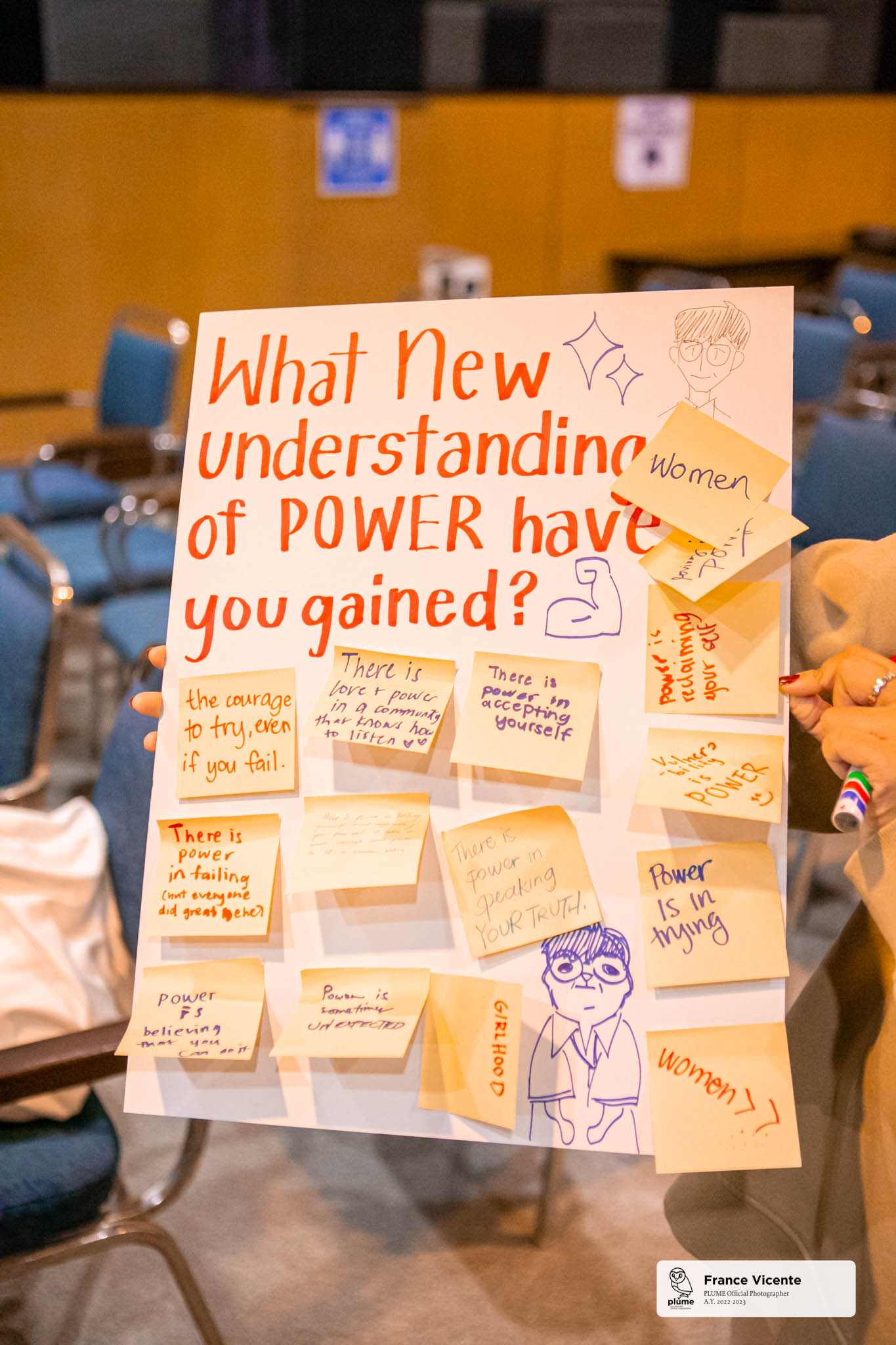
After taking on leadership roles in literary organizations and acknowledging that they’re not usually the kind of orgs that people “flock” to, Stanley learned that:
“You deserve to follow your heart.“
It’s not as selfish as you think. In a world where people often feel pressured to build up their resumes and careers as early as possible, it’s still very much possible to gain valuable knowledge and skills in organizations with causes you’re passionate about. Stanley elaborates that pursuing what you’re passionate about—what is fulfilling to you—is the truest and most creative way to serve and exist in the world.
Jasmine Paras
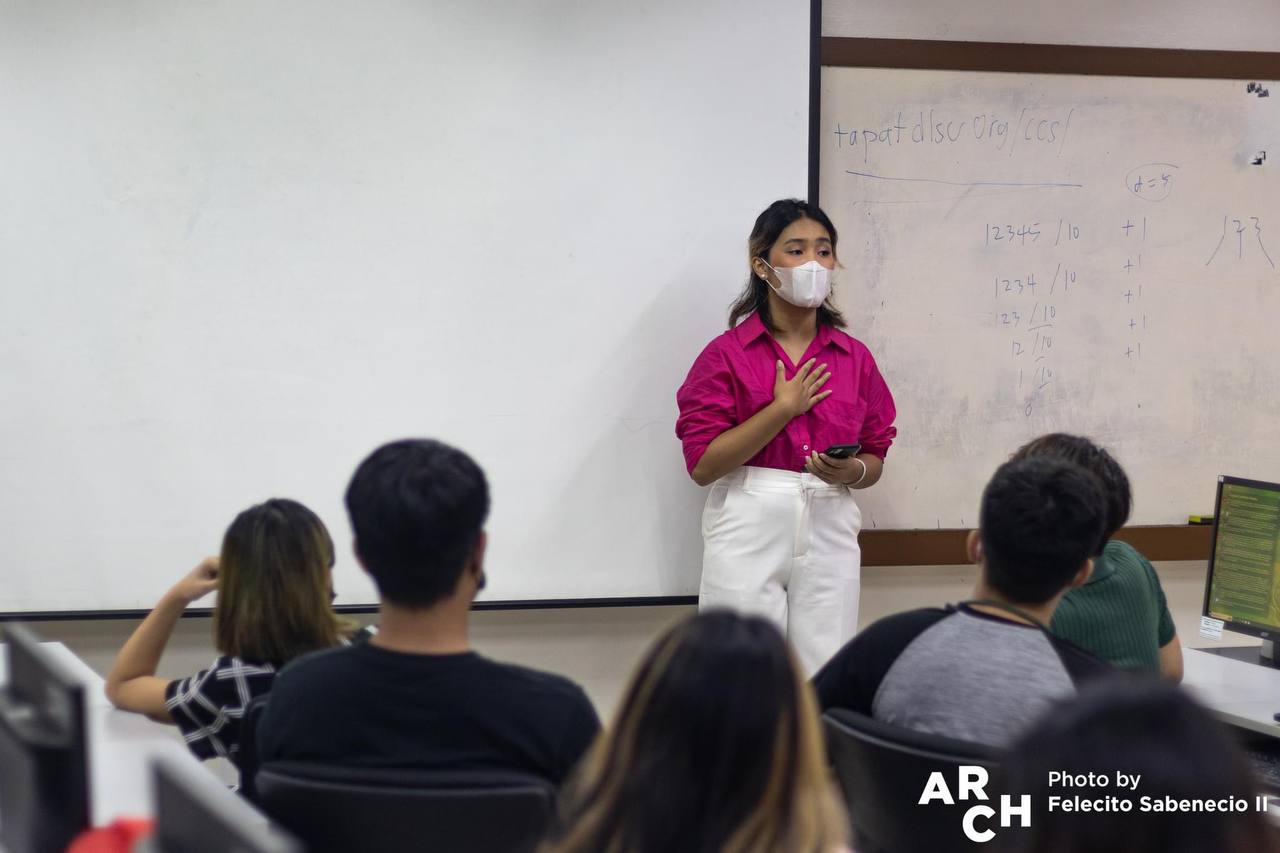
Jasmine Paras worked as Chief of Staff and Director for Advocacies for the Office of the Vice President for External Affairs at the De La Salle University Student Government. She worked on project development related to community development and national affairs as well as policy-making in legislation.
Jasmine’s work in student government was faced with several hurdles, only made worse by the COVID-19 pandemic. A primary problem that arose was the effect of burnout on the work they were doing as an organization.
“A lot of students—and a lot of student leaders, even—were burnt out from the fact that everything was online,” Jasmine shares. Burnout affects people of all ages in all professions, and it didn’t help that the pandemic added a new layer of stress. Students, juggling their academics, extracurriculars, personal lives, and other responsibilities in the middle of a global crisis could no longer take on as much work or pressure as they did before, and with valid reason.
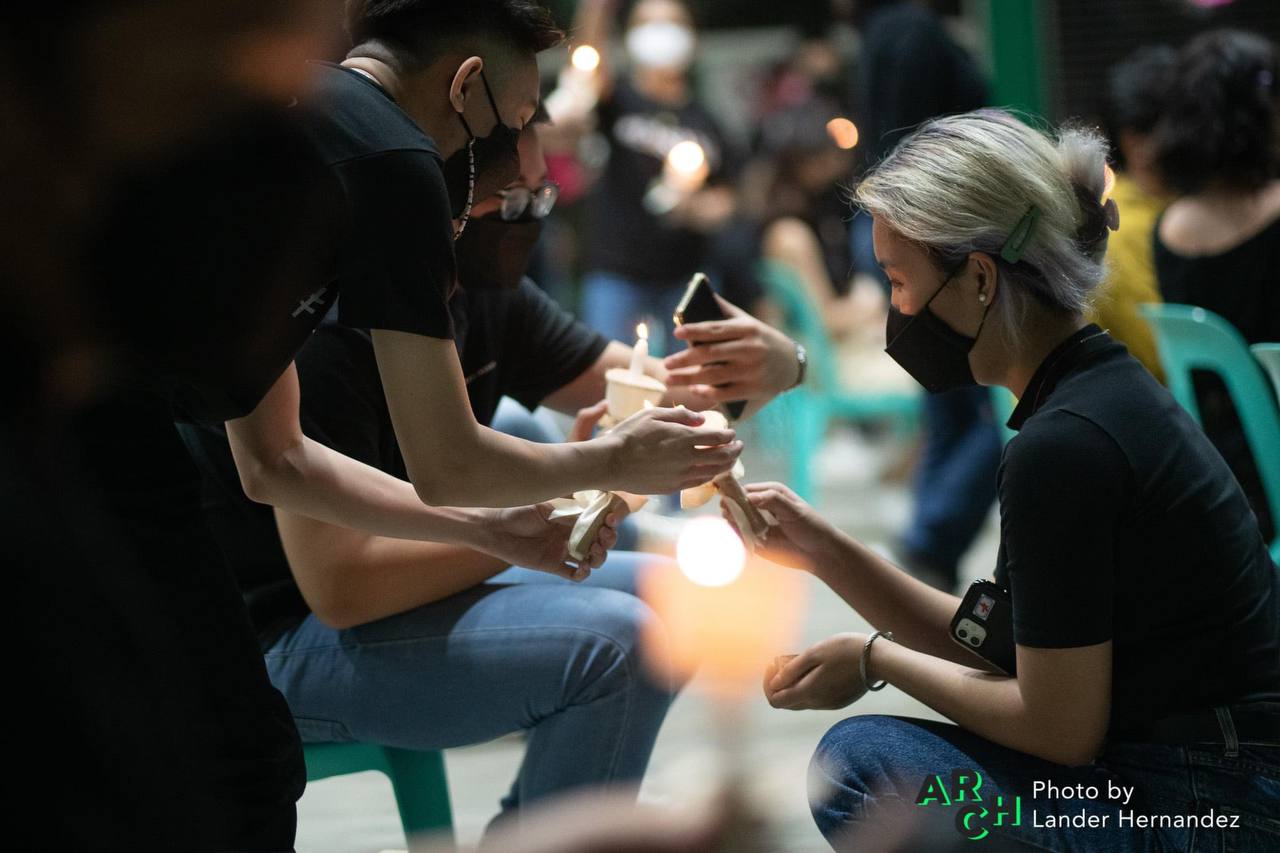
It was also a challenge for Jasmine and her other colleagues to deal with bureaucracy. She reflects on going through several hurdles given the scope and scale of her work in policy, development, and matters of national significance.
“When you’re implementing a project, especially when it’s related to national affairs, it has to go through so many people, it has to get approved by so many people.”
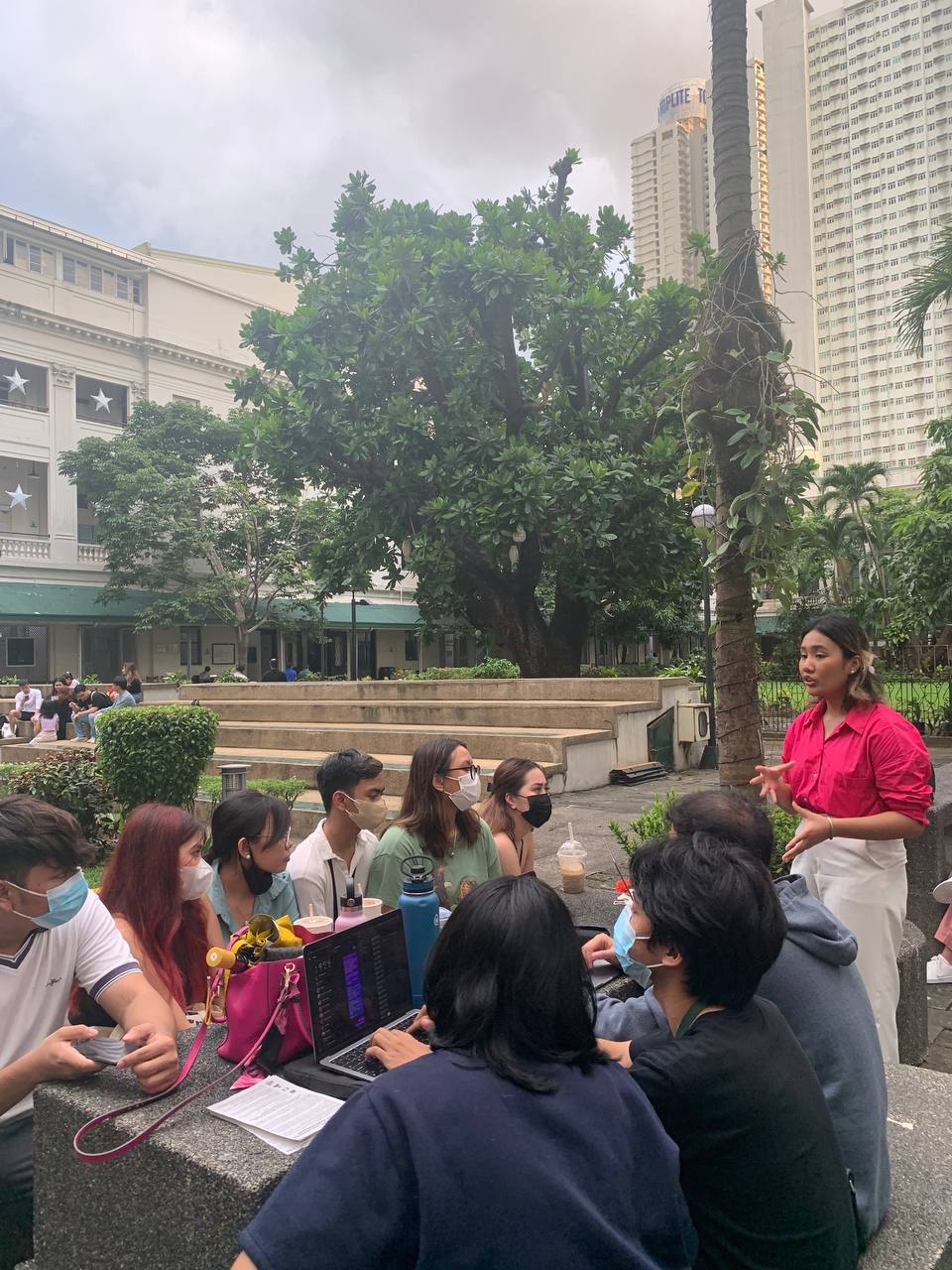
Students often have to fight to prove that they understand the stakes of representing an institution while trying to let their voices be heard. Having to deal with the stakes of advocating, representing, and being part of a student government takes a lot of courage and confidence, something Jasmine deeply values.
“You have to believe in yourself and in what you’re doing to succeed and surpass your own goals.”
She elaborates that if you confine yourself to what you think you can attain or achieve, you often fail to realize your full potential. Undermining one’s capabilities limits opportunities and pathways towards not just success, but fulfillment. Carrying these lessons allowed Jasmine to flourish in her endeavors outside of student leadership—endeavors that she never thought she could excel in when she first entered college.
Nina San Andres
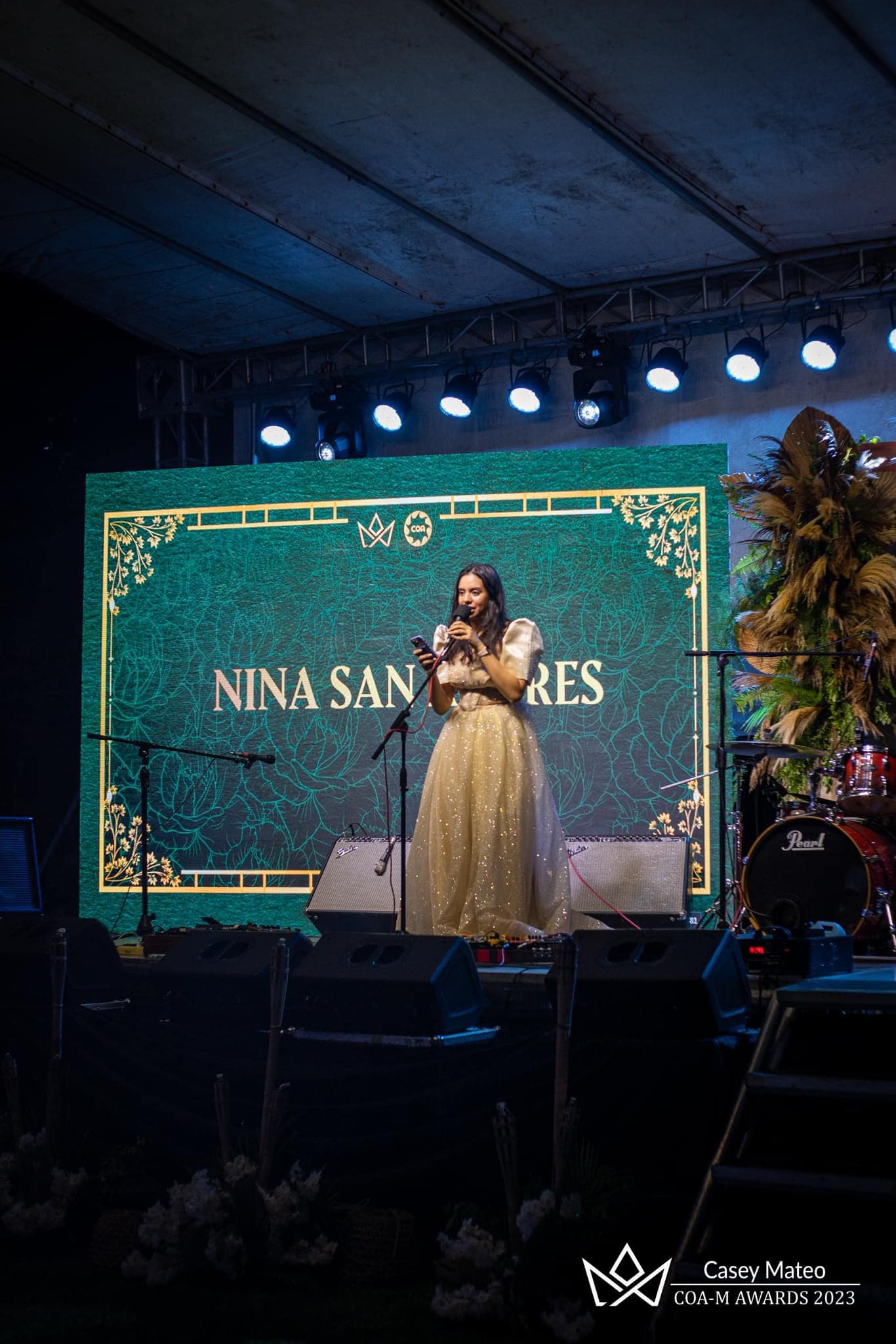
Nina San Andres was the former President and Vice President for Special Projects of the Council of the Organizations of the Ateneo – Manila, the collective of all accredited organizations within the Ateneo de Manila University that provides resources to orgs, their leaders and members, and advocates for their welfare.
COA-M saw firsthand the effect of the pandemic on student organizations as a whole. Given that she was president during the transition to onsite operations as well as one of the last few people who experienced such operations, she had a lot of responsibilities to fulfill. Familiarizing members with systems and processes of onsite orgwork was not the only challenge—they also had to learn to establish new systems and processes that befit the current situation.

Nina also mentioned how pandemic burnout affected organizations not just as systems but also as communities in general. She says, “A lot of people were really burnt out during the pandemic, and then coming back onsite a lot of people were unsure if they wanted to keep going.”
Rebuilding that rapport between orgs and people, as well as building up COA-M as an organization people can trust and turn to for support, were not easy. Efforts and resources were made available to organizations and members to address problems they may have. These internal issues were the focus of orgs early on in the transition, but Nina mentions that there has since been a push to expand their horizons by making efforts to bring their support and services to communities outside the org and the university as well.

While this push does entail overcoming apprehension and fear of going outside of comfort zones, Nina lives by something she’s learned over the last four years:
“Find comfort even in places of fear.”
“It’s okay to be afraid,” she adds. “But you need to overcome it enough to do [things] anyway even if you’re scared.” Courage and comfort in feeling afraid allows people to just make the jump—to do things like serve or lead with heart.
Louisa Tagulinao
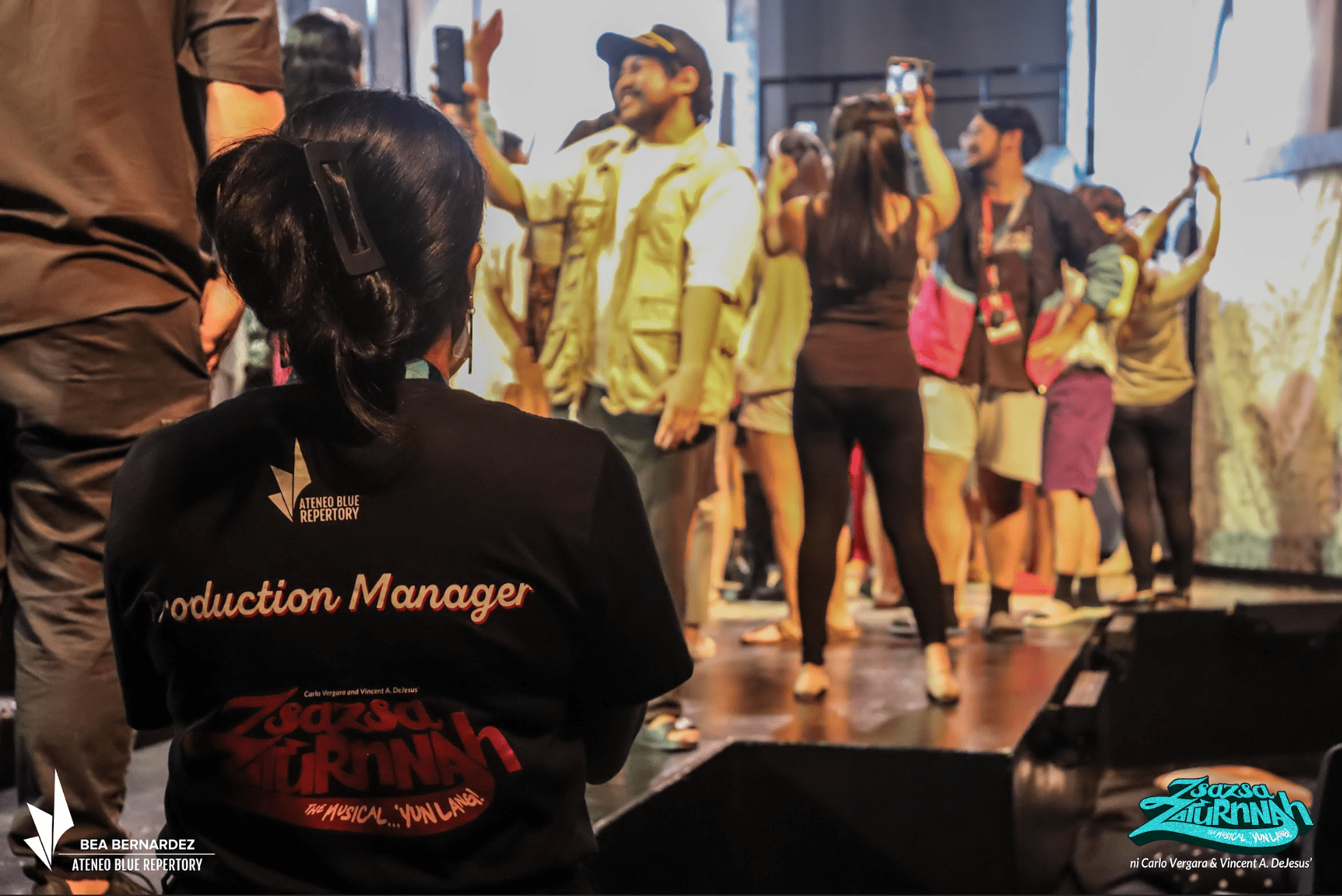
Louisa Tagulinao was Secretary-General and Production Manager for Ateneo Blue Repertory, the musical theatre org of the Ateneo, and also worked as a Community Relations Officer for Internal Communications for Barefoot Philippines, a volunteer arm for UNICEF.
Louisa spent time in Barefoot Philippines working on projects catered towards providing “contextual and sustainable assistance” to rural communities. She also managed one of Ateneo BlueREP’s most extravagant productions and its first live production since the pandemic, Zsazsa Zaturnnah the Musical… ‘Yun Lang!, and faced struggles related to stakeholders, the scale of the work, as well as her own confidence.
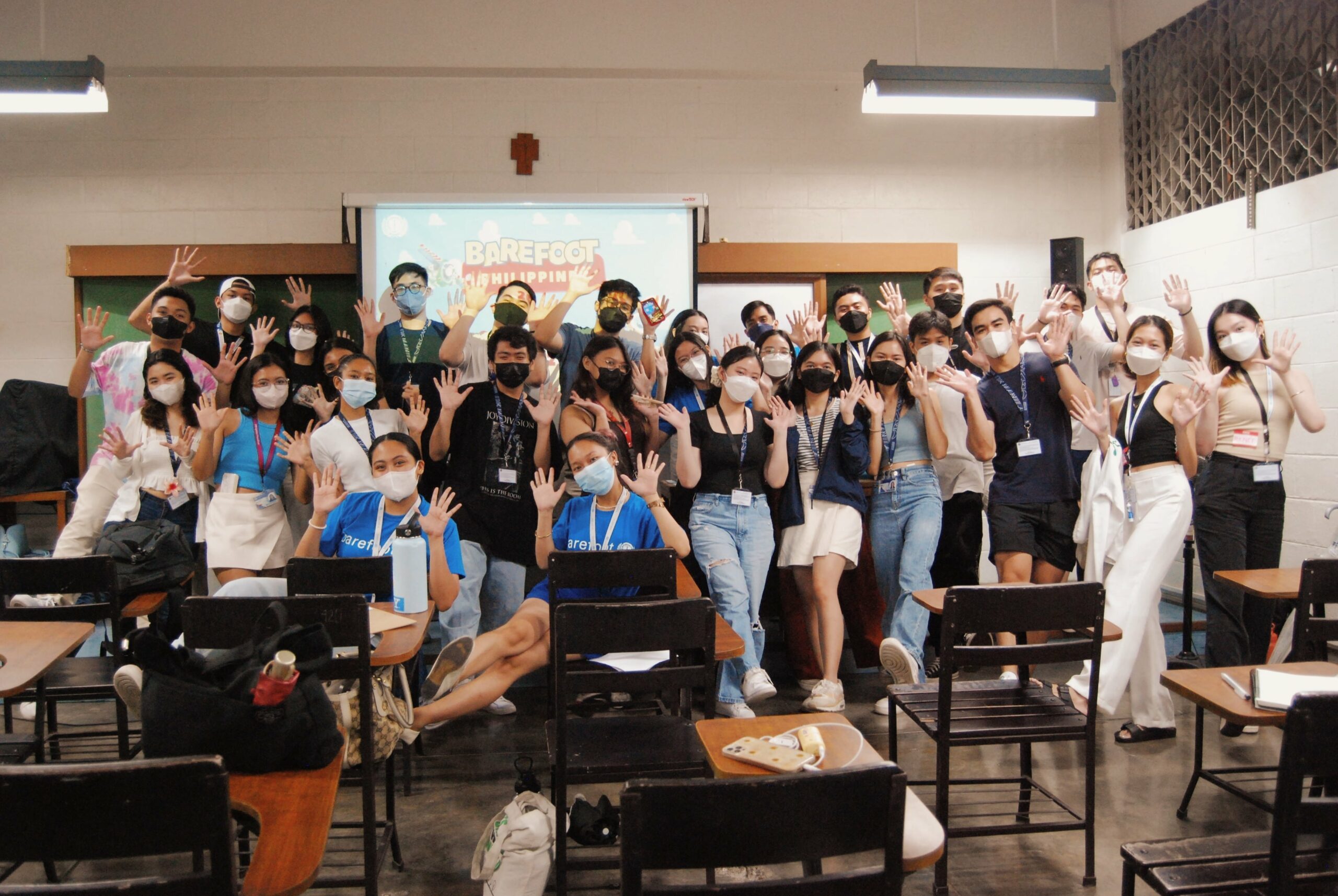
First there was the challenge of establishing herself as a student leader. She admits, “I found it a challenge to feel that sense of confidence and security in myself as a student who’s also a leader of something that has a really great scope and scale.” Zsazsa Zaturnnah, directed by Missy Maramara and starring Kim Molina in the titular role, saw huge success, from sold-out shows to visits from icons like Regine Velasquez herself.
The production’s scale allowed Louisa and her colleagues to learn from industry professionals, but she also quickly realized just how much there was to learn on the job itself, like technical and skill-based aspects of the show.

Louisa also worried about balancing priorities. She had her BlueREP members to worry about, but there’s also the stakeholders within Ateneo as well as important people outside the university to consider when making decisions. Having such responsibility, and dealing with problems she never expected coming in, taught Louisa the value of humility and being open to the learning experience.
“Be humble enough to accept that there is still much space for you to grow.”
“You have to work towards growth,” she says. “There’s always, always space to improve.” Louisa advises people to always look back at the time when they were just starting out—when they were new, curious, driven, and excited. Experiences are what made us, what taught us, and we should never let go of being open to learning from them.
Lara Jomalesa
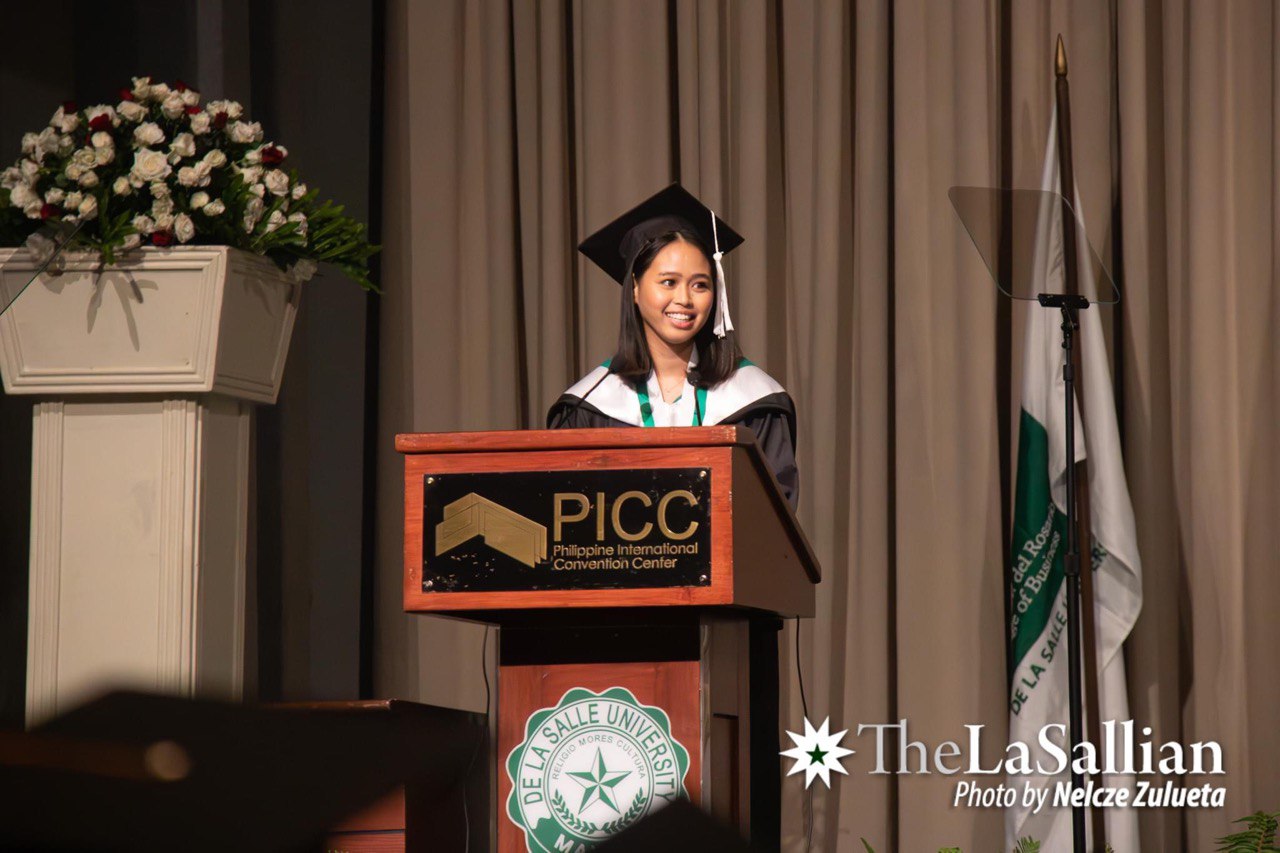
Lara Jomalesa was the former Vice President for External Affairs at the DLSU Student Government. She was also part of the University Legislative Assembly and worked towards promoting students’ rights and welfare, as well as Archers for UNICEF.
Communicating, coordinating, and community-building were particularly hard given the limitations imposed by the lockdown. Engaging with communities, especially for organizations serving or partnering with specific sectors of society, was particularly difficult as it was hard to build rapport with people remotely.
“It was really hard on our end to bridge the University with our different community partners.” Restrictions imposed due to the pandemic proved difficult to navigate and was even more challenging for those whose passions lie in working with external communities.
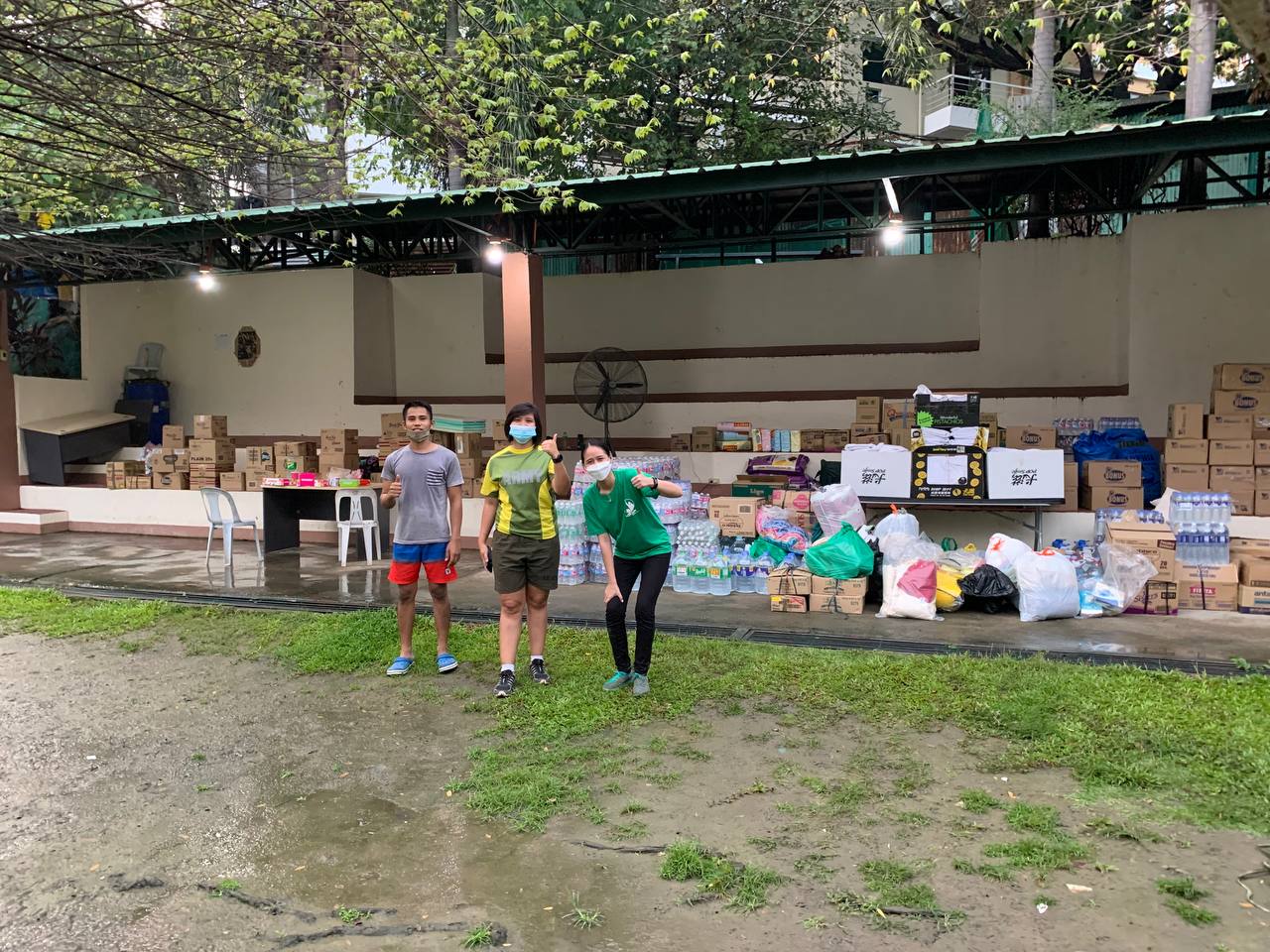
Quantity over quality in terms of initiatives was also an issue faced by Lara and her office. Driven by a desire to address national and international concerns and bridging external opportunities to students, they offered a substantial amount of online activities that unfortunately did not make as much of an impact. Students also experienced burnout organizing these activities, so Lara and her office endeavored to shift to more quality activities that would benefit the student body.
Lara values every chance to do good for the student body. She also had the opportunity to deliver the graduate response or speech to her graduating batch, and she shares what she’s learned:
“Continue to do ordinary things extraordinarily well.”
Her words are inspired by those of a Lasallian Brother. At the core of effective leadership lies the effort of doing ordinary things extraordinarily well. She further expresses that to deal with whatever challenge we face in life, we have to “start with empathy and learn the value of grit.” This is how we become catalysts of change.
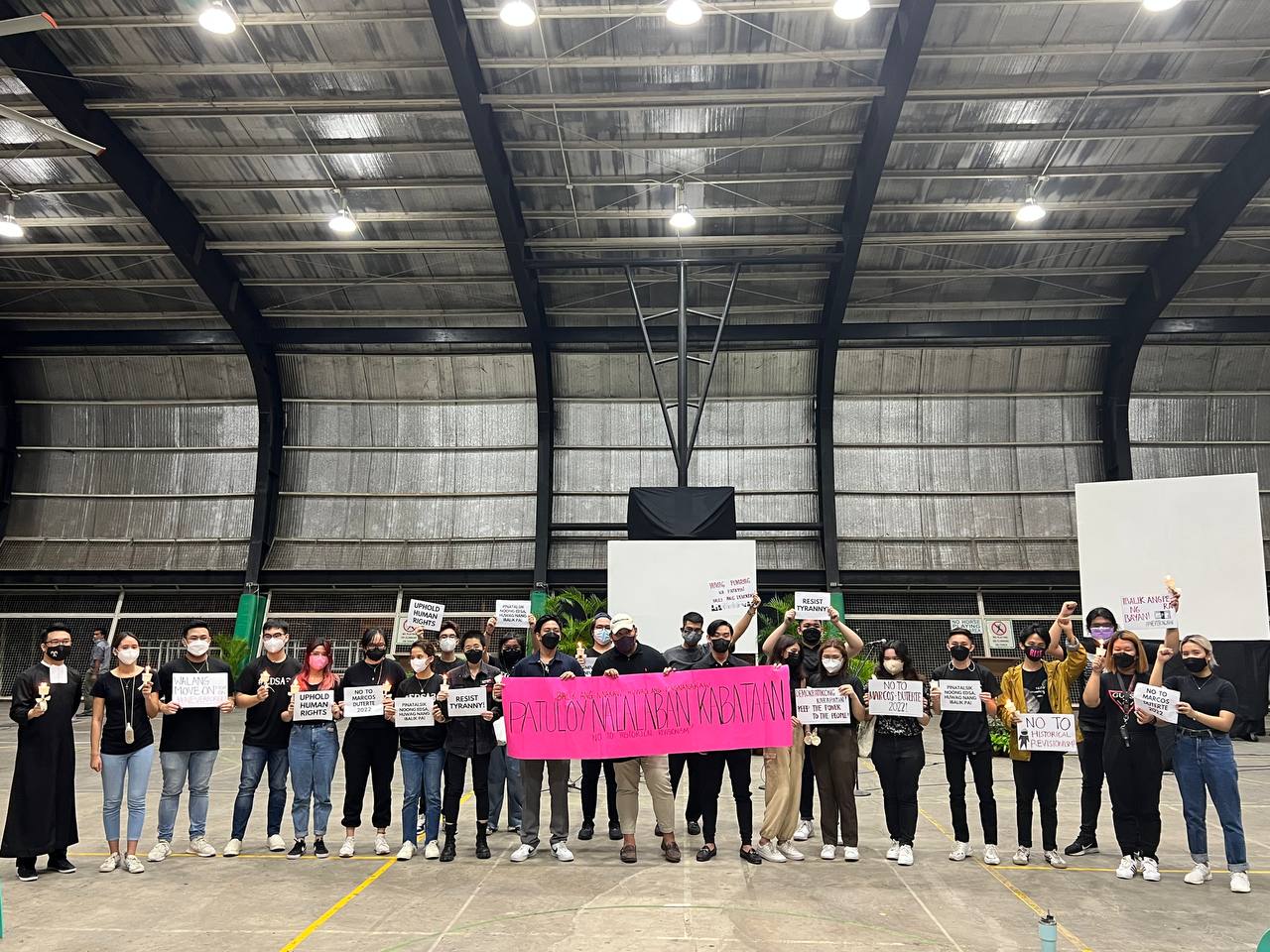
GOING ABOVE AND BEYOND
Despite the differences in their fields of work, these student leaders sought to go beyond the walls of their universities and serve not just the student body, but also the nation. They harbor a deep-seated desire to serve, to create something meaningful, and to utilize their resources to participate in efforts towards change.
Nina asserts that in our current socio-political context, organizations have to expand their reach. “You have to bring what you do to people outside,” she shares. Student organizations have the capacity to mobilize and direct efforts towards communities outside of their schools and universities, and stand in solidarity with those disadvantaged or marginalized.
Student organizations are versatile, and can be spaces for personal and collective growth, community, and solidarity. If you’re unsure about if you want to commit to one or even lead one during your college era, keep that in mind.
Continue Reading: So, You Just Graduated From College. Now What?
